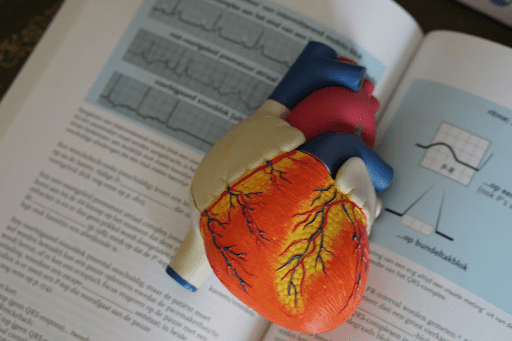The Easiest Ways To Approach Cardiac Health And Heart Failure Prevention

Heart disease is the most common reason for death in both genders in the United States. Each year, more people die from heart disease than any other ailment–even cancer. You can take steps to reduce your risk of heart failure by being proactive about cardiac health. This article provides some tips on how to improve your cardiac health and decrease your likelihood of developing cardiovascular problems.
Cut down on salt
Too much sodium can cause high blood pressure, which is a risk factor for heart disease. The American Heart Association advises limiting salt intake to 2300 milligrams each day–about one teaspoon. Most of the salt we eat comes from processed foods, so it’s important to read labels and choose low-sodium options.
Instead of table salt, opt for herbs and spices to flavor your food. These not only add taste without salt, but they also offer health benefits. The best herbs for heart health include ginger, garlic, cayenne pepper, and turmeric.
Get active
Exercise is crucial for maintaining a healthy heart. It helps to lower blood pressure, cholesterol levels, and triglycerides. It also helps improve your body’s use of insulin, which can reduce your risk of developing type II diabetes. Aim for at least 30 minutes of moderate-intensity exercise most days of the week, as it will aid in the prevention of heart failure development. These can be broken up into shorter bouts of exercise, such as ten minutes three times a day. If you’d rather, you might do a ten-minute walk in the morning, a ten-minute run during lunchtime, and a ten-minute bike ride at night. Strength training is also important to include in your routine.
Eat a healthy diet
What you eat has a big impact on your cardiac health. Eating plenty of fruits, vegetables, and whole grains can help reduce your risk of developing cardiovascular disease. Additionally, limit your intake of saturated and trans fats, as well as sugar. These foods can contribute to high cholesterol and triglyceride levels, which can damage your heart. In addition, items such as alcohol and tobacco should be used in moderation, as they can also have negative effects on heart health.
Don’t smoke
Smoking is one of the most significant risk factors for developing heart disease. If you smoke, quitting is the best thing you can do for your heart health. There are many resources available to help you quit smoking, so take advantage of them if you’re struggling.
For instance, the American Heart Association has a program called My Life Check that can help you assess your risk of developing heart disease and provides tips for reducing that risk.
Opt for whole grains
Whole grains are a good source of fiber, which can help lower cholesterol levels and reduce your risk of heart disease. Fiber-rich foods also tend to be more filling, so you’re less likely to overeat. When choosing grain products, opt for those made with 100% whole wheat or another whole grain. These include items such as whole wheat bread, oatmeal, and brown rice. When possible, avoid refined grains, such as those found in white bread and pastries. Namely, these types of foods can cause spikes in blood sugar levels, which can be damaging to the heart.
Monitor your blood pressure
High blood pressure puts strain on your arteries and heart and can damage them over time. This increases your risk of developing cardiovascular disease, so it’s important to keep tabs on your blood pressure. You can do this by having your blood pressure checked regularly by a doctor or using a home blood pressure monitor.
If your blood pressure is higher than 120/80 mmHg, you may need to make lifestyle changes and/or take medication to get it under control. These changes can include eating a healthier diet, exercising more, and quitting smoking.
Get your cholesterol checked
Cholesterol is a fatty substance that can accumulate in the arteries and cause heart disease. Low-density lipoprotein (LDL) and high-density lipoprotein (HDL) are two names for cholesterol. LDL is the “bad” cholesterol, as it can contribute to plaque buildup in your arteries. HDL is the “good” cholesterol, as it helps remove LDL from your arteries.
You can have your cholesterol checked with a simple blood test. If your LDL levels are high, you may need to make lifestyle changes and/or take medication to lower them. Some healthy changes you can make are eating better, working out, and slimming down.
Keep diabetes under control
If you have diabetes, it’s important to keep your blood sugar levels under control. This can help prevent damage to your arteries and heart. There are many ways to do this, including eating a healthy diet, exercising regularly, and taking medication as prescribed by your doctor.
When it comes to managing diabetes effectively, every little detail matters—including your choice of footwear. Investing in Diabetic Socks can provide numerous benefits for individuals living with this condition. From preventing painful sores and reducing infection risks to improving circulation in the feet and ankles.
A common complication of diabetes is diabetic ketoacidosis, which can lead to a heart attack. If you have diabetes, it’s important to be aware of the signs and symptoms of this condition so you can get treatment right away if necessary.
Relax and de-stress
Stress can take a toll on your heart health. If you’re feeling stressed, try to find ways to relax and reduce your stress levels. This can include things like yoga, meditation, and deep breathing exercises. Heart disease is a serious problem that should not be taken lightly. However, there are many things you can do to reduce your risk of developing heart disease. By following the tips above, you can help keep your heart healthy and lower your chances of developing heart disease or having a heart attack.
Regular health screenings are important
Another approach to help avoid heart disease is to get regular health checkups. These can help identify problems before they become serious. Blood tests, cholesterol testing, and blood pressure checks are examples of health screenings. If you or someone in your family has a history of heart disease, you could need to start getting them at a younger age. Choose the health tests that are best for you and when you should have them based on your medical history.
These are just a few of the ways you can improve your cardiac health. By taking these steps, you’ll be on your way to a healthier heart–and a lower risk of developing heart disease. Remember, though, that this is not an exhaustive list. If you have any concerns about your heart health, be sure to talk to your doctor. They can help you develop a plan that’s right for you.









